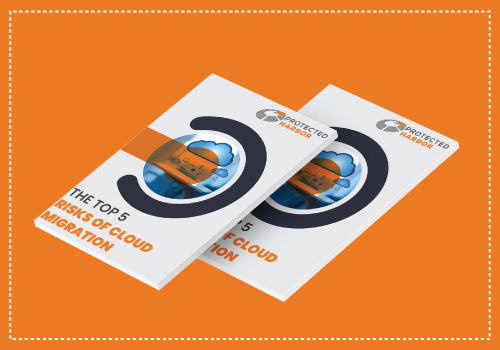These Cloud Vulnerabilities Will Cause Your Next Data Breach
Cyber security is a constant race between businesses and hackers in the digital world. Every new technology has potential risks that must be understood and addressed before implementation. New threats are emerging all the time and cloud computing is no different. Many types of cloud services are being used by businesses more than ever before.
In fact, according to Gartner, private cloud services will continue to grow faster than public cloud services in the next few years. However, some types of clouds are riskier than others regarding cyber security. Several vulnerabilities can expose your company’s data when using any cloud service or Software as a Service (SaaS) application.
This article lists common vulnerabilities you should know about before using any cloud-based system or software.
Understanding Cloud Vulnerabilities: Protecting Sensitive Customer Information
As businesses increasingly turn to the cloud for their computing needs, it’s important to consider the potential vulnerabilities of storing sensitive customer information in a shared infrastructure. Cyber attacks are a constant threat, and unauthorized access to personal data such as social security numbers, financial information, and other sensitive information can lead to identity theft and other serious consequences.
Infrastructure as a Service (IaaS) and Platform as a Service (PaaS) are two popular cloud computing services businesses use to store and access their data. While the cloud offers many benefits, knowing the potential risks is important. Cloud providers are responsible for securing the underlying infrastructure and providing secure cloud access. Still, businesses are responsible for securing their own data and applications that run on top of the cloud infrastructure.
One way to protect sensitive customer information is by using a hybrid cloud model, which allows businesses to keep some of their data in a private data center while still taking advantage of cloud computing resources. This approach can provide additional security and control over customer data.
Another important consideration is the use of virtual machines in the cloud. Virtual machines can help isolate applications and data, limiting the impact of a potential cyber attack. It’s also important to implement access controls and encryption to prevent unauthorized access to sensitive information.
Public Exposure
The oldest blunder in the book is setting up a new cloud resource but leaving it entirely insecure and publicly visible. Your unprotected public assets will almost certainly be found because hackers today frequently use automated tools to scan target networks for any exposed assets.
By 2022, nearly 50% of businesses would unknowingly or accidentally have some IaaS storage devices, networks, apps, or APIs directly exposed to the public internet. This number is up from 25% in 2018.
Excessive Permissions
Fast company operations are one of the main advantages of switching to the cloud. However, access credentials are routinely distributed hurriedly and needlessly in the interest of expediency, resulting in many individuals having excessive permissions for which they have no business need for. If any of those credentials end up in the wrong hands, attackers would have unrestricted access to private information.
By 2023 (up from 50% in 2020) 25% of security breaches will be due to improper handling of login credentials, identities, and privileges, predicts Gartner.
 Lack of Multi-factor Authentication for Privileged Users
Lack of Multi-factor Authentication for Privileged Users
One of the most typical cloud vulnerabilities is the absence of Multi-Factor Authentication (MFA) for users assigned to privileged administrative positions in control. Access for privileged users must be as secure and feasible in any cloud environment. A company may suffer severe repercussions if a fundamental security measure like MFA is not enabled.
It is straightforward for malicious actors to exploit privileged accounts without MFA being enabled. These accounts are vulnerable to brute force assaults due to lacking MFA. Hackers can use these accounts to entirely disrupt an organization’s operations and steal its data because they often have high administrator permissions.
Insecure APIs
APIs, or Application Programming Interfaces, are frequently used to simplify cloud computing. APIs make it very simple to share data between other apps, improving convenience and efficiency. However, if they are not secured, this can lead to multiple cloud vulnerabilities and become an easy entry point for malicious attackers.
Threat actors can launch DDoS assaults and obtain access to sensitive company data by taking advantage of unsecured APIs while remaining unnoticed. In fact, by 2022, API abuses are anticipated to overtake other attack methods as the most popular, according to Gartner data.
Final Thoughts
If companies using the cloud do not consider limiting the dangers that accompany it, they are taking a preventable yet significant risk. The IT processes teams use to develop and deploy applications in the cloud infrastructure must be well integrated into a company’s strict cloud security rules.
The use of cloud computing has changed how businesses and hackers operate. Both new opportunities and threats related to cloud security have been introduced. Enterprises must continuously address the dangers and difficulties associated with cloud security while implementing the appropriate security technologies to facilitate operational work.
It’s essential to understand the potential vulnerabilities so that you can mitigate them. Suppose you have any concerns about your current cloud environment. In that case, you can consult with a cloud consulting company like Protected Harbor to help you assess the risks and implement practices to avoid data breaches.
Protected Harbor‘s cloud security solution integrates the latest security technologies with your cloud infrastructure. Businesses can take advantage of cloud computing’s capabilities with the right technology and the help of cloud security specialists.
We have researched and created an e-book for companies looking to migrate to the cloud. This e-book helps them to understand better the benefits as well as the risks that come with cloud migration so that they can plan. Get your free copy of the e-book today!






